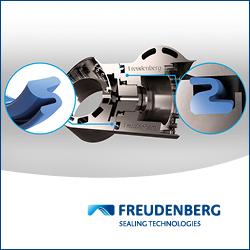University spin-out company with Sebastian Conran to develop next generation of robots
A new company has been formed to bring next generation assistive and companion robots to market by combining University-developed robotics research with the best of British design.
A new company has been formed to bring next generation assistive and companion robots to market by combining University-developed robotics research with the best of British design.
The companys first product, MiRO, a programmable companion robot that looks and behaves like a pet animal, will be launched at the International Conference on Robotics and Automation in Stockholm this week.
With dog-like features, MiRO has six ‘senses including touch sensitivity, light sensitivity, stereo eyesight and sharp hearing. The robot also uses a sonar sense, rather like bats and dolphins, to help navigate its surroundings. MiROs cliff sensors help to ensure that it does not fall off a table or down a flight of stairs.
Initially, MiRO will be marketed to robot researchers interested in developing future companion robots, and to universities doing research in robotics or offering training in robot programming.
The University of Sheffield is a shareholder in Consequential Robotics as well as intellectual property commercialisation business, IP Group plc and academic founders, Professor Tony Prescott and Dr Ben Mitchinson. This is also the first company to be spun-out of Sheffield Robotics, an institute formed across both the Universities of Sheffield, of which Professor Prescott is the current director.
Professor Tony Prescott said: "Consequential Robotics builds on a scientific approach to robot design that we have been developing in Sheffield for more than two decades and that is based on our understanding natural intelligence in animals and people. We use ideas from psychology and neuroscience to help design future robots to be more useful and more life-like."
"MiRO, our first product, is a step towards developing companion robots - the future robots that will share our personal spaces, provide entertainment and social interaction, and enhance our quality of life."
Sebastian Conran said: "At the heart of our approach is human-centered design - understanding the practical needs of our users as well as their emotional wants and dreams. Im excited to develop new technologies and products with Professor Prescott and his team."
Aidong Xu, Director of New Business & Partnerships at IP Group said: "Consequential Robotics addresses one of the fast growing emerging markets - companion and assistive robotics, thanks to its unique capability of combining world-leading psychology research with renowned award-winning design. As the University of Sheffields IP commercialisation partner, IP Group is very excited to be on board to support the development of the business to help realise its full potential."
For more information about Consequential Robotics and MiRo, visit http://consequentialrobotics.com/
Sebastian Conran has been a Designer in Residence at the University of Sheffield for five years. For more information visit sebastianconran.com
Sheffield Robotics
Sheffield Robotics has one of the largest portfolios of ongoing publicly-funded robotics research in the UK, supported by both the UK Research Councils and the European Union. We are also building research partnerships with leading industrial, commercial, and government organisations in order to ensure the real-world relevance and impact of our research. As a member of the Northern Robotics Network, and of the EPSRC UK-RAS Network, Sheffield Robotics acts as a central hub for robotics research within the UK. Through our international links, we seek to play a leading role in the world robotics community, and to promote the development of ethical, useful, safe, and sustainable robotic and autonomous systems that can enhance human prosperity across the globe.
The University of Sheffield
With almost 27,000 of the brightest students from over 140 countries, learning alongside over 1,200 of the best academics from across the globe, the University of Sheffield is one of the worlds leading universities.
A member of the UKs prestigious Russell Group of leading research-led institutions, Sheffield offers world-class teaching and research excellence across a wide range of disciplines.
Unified by the power of discovery and understanding, staff and students at the university are committed to finding new ways to transform the world we live in.
Sheffield is the only university to feature in The Sunday Times 100 Best Not-For-Profit Organisations to Work For 2016 and was voted number one university in the UK for Student Satisfaction by Times Higher Education in 2014. In the last decade it has won four Queens Anniversary Prizes in recognition of the outstanding contribution to the United Kingdoms intellectual, economic, cultural and social life.
Sheffield has five Nobel Prize winners among former staff and students and its alumni go on to hold positions of great responsibility and influence all over the world, making significant contributions in their chosen fields. Global research partners and clients include Boeing, Rolls-Royce, Unilever, AstraZeneca, Glaxo SmithKline, Siemens and Airbus, as well as many UK and overseas government agencies and charitable foundations.
Featured Product

IP Seals for Robots
Freudenberg Sealing Technologies' IPRS (Ingress Protection Seals for Robots) provides reliable protection for robotic systems operating in harsh environments. Designed to prevent dust, moisture, chemicals, and wear from compromising performance, IPRS extends service life and reduces maintenance. The adaptive Z-shaped geometry ensures sealing integrity under continuous motion, making it ideal for high-speed automation and outdoor applications. Manufactured with high-performance elastomers such as Fluoroprene XP and EPDM, IPRS offers exceptional resistance to lubricants, cleaning agents, and extreme temperatures. This makes it the perfect solution for six-axis robots, SCARA robots, AMRs, AGVs, and cobots.
With its low-friction design and durable materials, IPRS enhances energy efficiency and operational reliability in industrial and autonomous robotics. Learn more about our IPRS Seals
